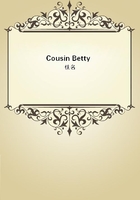
第147章
At the beginning of 1845 Celestine engaged as kitchen-maid a sturdy Normandy peasant come from Isigny--short-waisted, with strong red arms, a common face, as dull as an "occasional piece" at the play, and hardly to be persuaded out of wearing the classical linen cap peculiar to the women of Lower Normandy. This girl, as buxom as a wet-nurse, looked as if she would burst the blue cotton check in which she clothed her person. Her florid face might have been hewn out of stone, so hard were its tawny outlines.
Of course no attention was paid to the advent in the house of this girl, whose name was Agathe--an ordinary, wide-awake specimen, such as is daily imported from the provinces. Agathe had no attractions for the cook, her tongue was too rough, for she had served in a suburban inn, waiting on carters; and instead of making a conquest of her chief and winning from him the secrets of the high art of the kitchen, she was the object of his great contempt. The /chef's/ attentions were, in fact, devoted to Louise, the Countess Steinbock's maid. The country girl, thinking herself ill-used, complained bitterly that she was always sent out of the way on some pretext when the /chef/ was finishing a dish or putting the crowning touch to a sauce.
"I am out of luck," said she, "and I shall go to another place."
And yet she stayed though she had twice given notice to quit.
One night, Adeline, roused by some unusual noise, did not see Hector in the bed he occupied near hers; for they slept side by side in two beds, as beseemed an old couple. She lay awake an hour, but he did not return. Seized with a panic, fancying some tragic end had overtaken him--an apoplectic attack, perhaps--she went upstairs to the floor occupied by the servants, and then was attracted to the room where Agathe slept, partly by seeing a light below the door, and partly by the murmur of voices. She stood still in dismay on recognizing the voice of her husband, who, a victim to Agathe's charms, to vanquish this strapping wench's not disinterested resistance, went to the length of saying:
"My wife has not long to live, and if you like you may be a Baroness."
Adeline gave a cry, dropped her candlestick, and fled.
Three days later the Baroness, who had received the last sacraments, was dying, surrounded by her weeping family.
Just before she died, she took her husband's hand and pressed it, murmuring in his ear:
"My dear, I had nothing left to give up to you but my life. In a minute or two you will be free, and can make another Baronne Hulot."
And, rare sight, tears oozed from her dead eyes.
This desperateness of vice had vanquished the patience of the angel, who, on the brink of eternity, gave utterance to the only reproach she had ever spoken in her life.
The Baron left Paris three days after his wife's funeral. Eleven months after Victorin heard indirectly of his father's marriage to Mademoiselle Agathe Piquetard, solemnized at Isigny, on the 1st February 1846.
"Parents may hinder their children's marriage, but children cannot interfere with the insane acts of their parents in their second childhood," said Maitre Hulot to Maitre Popinot, the second son of the Minister of Commerce, who was discussing this marriage.